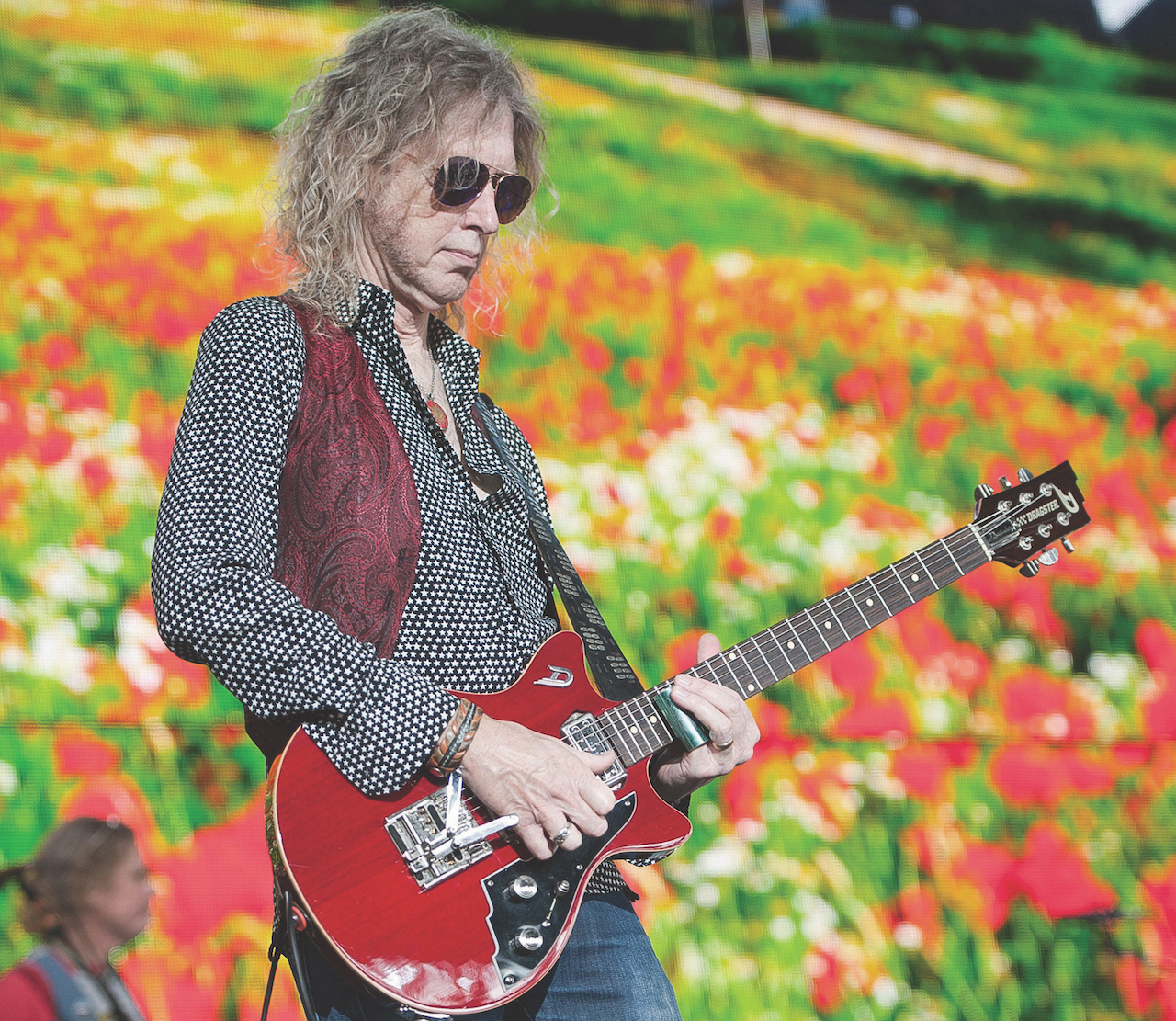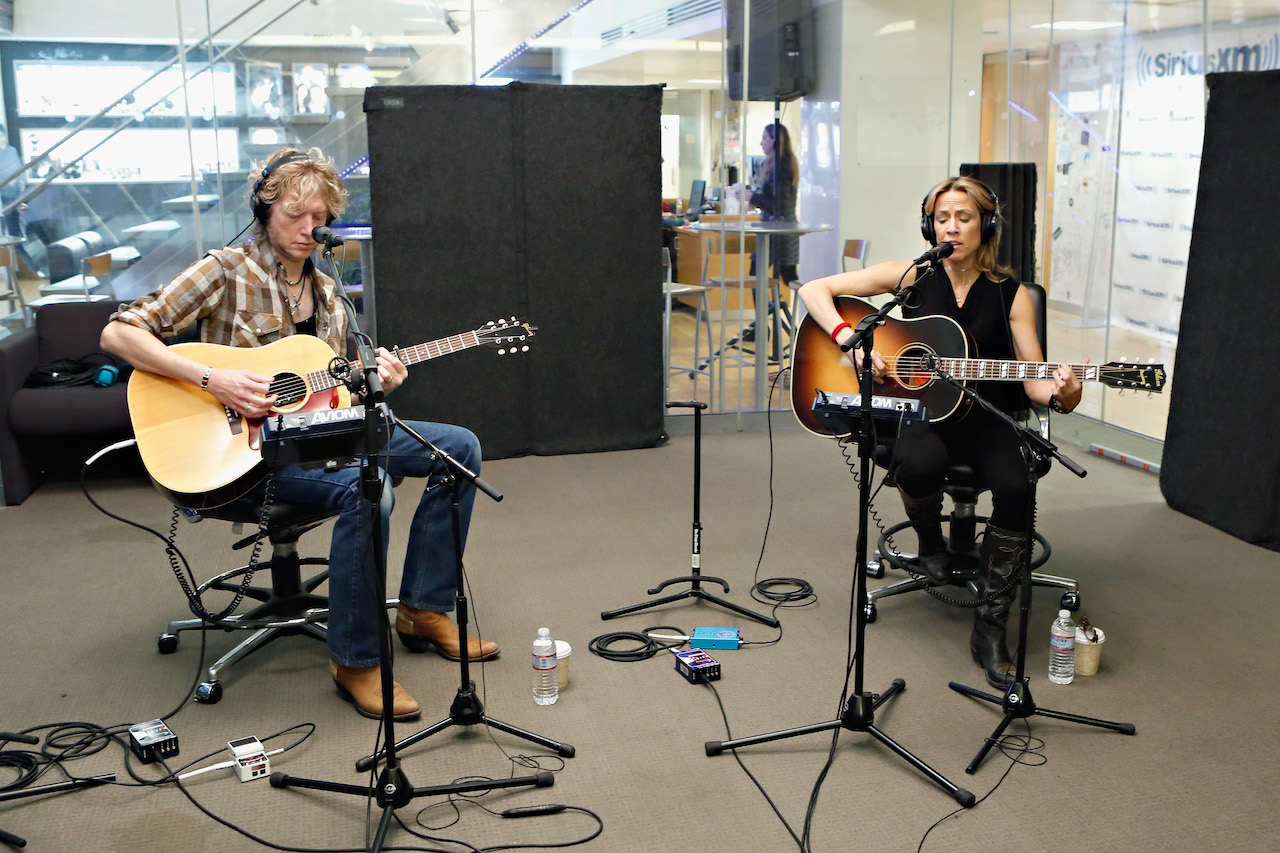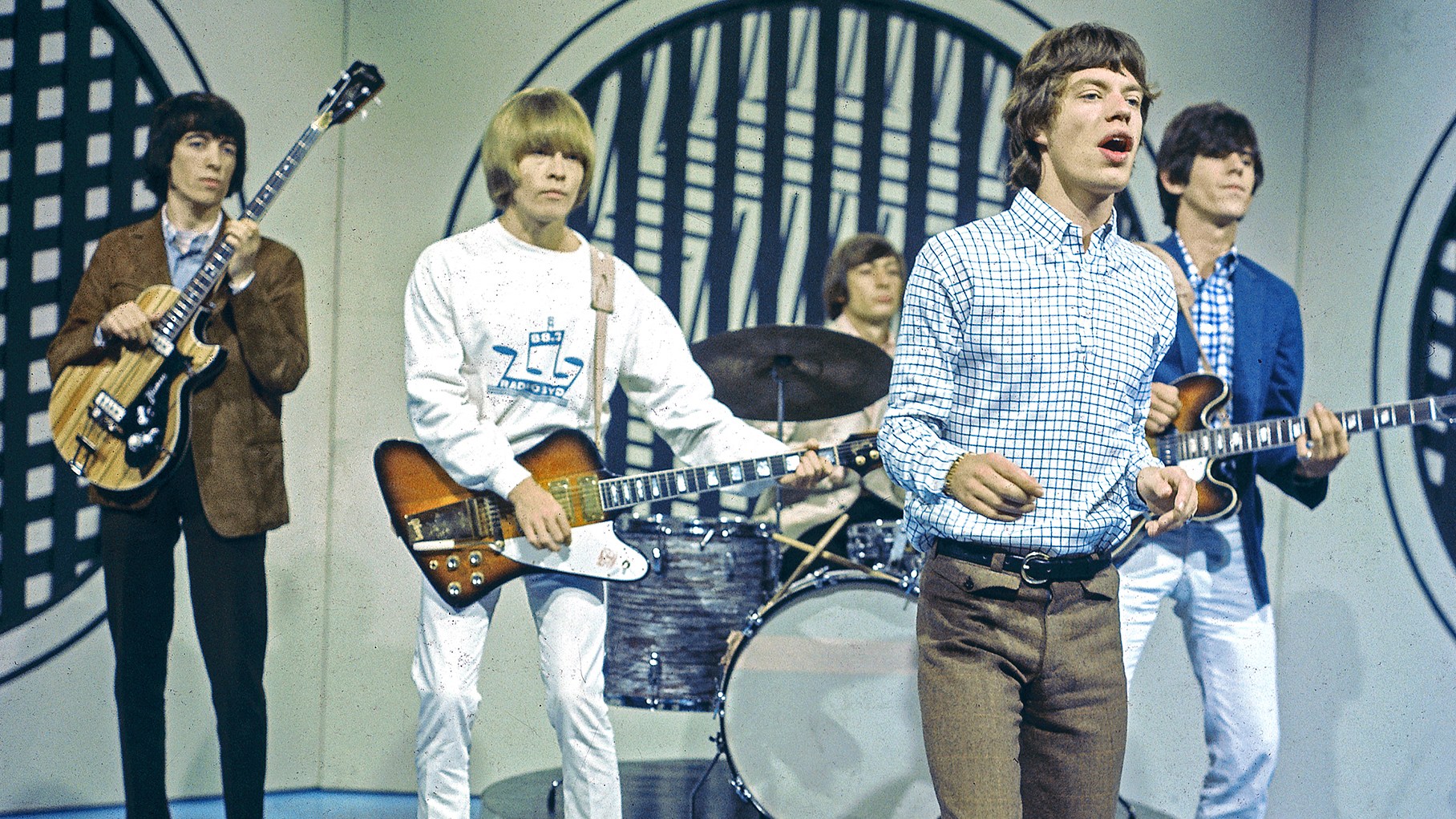“I’d advise new guitarists to play with an amp. When you use an amp modeler, your touch and picking will be very different”: Sheryl Crow guitarist Peter Stroud on why guitarists shouldn’t start on modelers, and how to complement a singer with your playing

All the latest guitar news, interviews, lessons, reviews, deals and more, direct to your inbox!
You are now subscribed
Your newsletter sign-up was successful
Years before Peter Stroud set his sights on playing the guitar for a living, his father gave him a few non-musical pointers that would prove invaluable.
“He told me, no matter what you do in life, be a good listener,” Stroud says. “That always stayed with me, the idea that you don’t always have to say something just because you can, and you don’t always have to be the first person to talk. Learn to read the room. Try to understand the people you’re dealing with.”
For Stroud, communication skills are as important as musical chops, especially when it comes to his long-running role in Sheryl Crow’s touring band as both guitarist and musical director.
“Sheryl is a dear friend, so we have that kind of relationship,” he explains. “On the other hand, she’s also my boss, and like anybody else who has to run an organization, she has a million things she has to deal with. There are days when she may appear upset about something and it comes across as she’s being grumpy toward me. You start to think, ‘Oh, I must be troubling her.’ But that’s just a self-centered way to look at it, and that’s when I have to take a step back and understand what it is she’s really thinking about.
“Like my father said, you have to be a good listener, and that’s really important in getting along with somebody and a group of people. You’ve got to pull back and allow everybody to be themselves around you.”
In addition to his work with Crow, Stroud has performed with artists such as Don Henley, Stevie Nicks, Sarah McLachlan, Pete Droge, and the Chicks. “Obviously, they’re very different as artists,” he says, “but my approach to working with them is the same: I have to figure out what they need and want from me, which really comes down to helping them sound the way they want. It’s not about me – it’s about them. That’s something that I always have to keep in mind.”
Clearly, Stroud knows a thing or two about a thing or two, and here he imparts more kernels of wisdom that have served him well during his career.
All the latest guitar news, interviews, lessons, reviews, deals and more, direct to your inbox!

1. Stop focusing on your own playing
“Whether you’re gigging or recording, you need to adjust your perspective accordingly. First and foremost, I would say that you have to listen to what the singer is doing. I’ve seen it time and again: Guitarists are laser-focused on their own playing. I don’t know whether it’s an ego thing or if they haven’t trained themselves to work as part of a team in a band, but unless they listen to the singer, they’re not contributing to the number one goal, which is to make great music.
“Learn what it takes to complement the singer. Make your rhythm fit in and around the vocals. Know when to come in and when to get out of the way. Most of the time, you’ll find that a little is enough – less is more. This flies in the face of guitarists’ impulses, because they feel like they want to make their presence known. Just know, you’ll be valued if you play the right part at the right time. Nine times out of 10, and maybe it’s 10 times out of 10, overplaying isn’t what’s required.
“When I listen back to recordings I’ve been a part of, I always check myself to make sure I’m not noodling. If you need a good reference, check out anything Mike Campbell is on. He’s the perfect example of playing the right thing for the song at all times.”

2. Be prepared
“Whether you’re going to an audition for a big artist or a local band, you need to be prepared. You’d be surprised at the stories I’ve heard about guitarists showing up at auditions who haven’t bothered to learn the material they’re expected to play.
“I got the gig for a Don Henley tour because I was totally prepared. I was told what songs I’d be expected to play, and I learned them top to bottom, back and forth. I learned the parts. I got my sounds down. I had everything memorized to the point where it was all second nature and I could just play. But it took work.
“Maybe you’ll be hired right off the bat for some gigs because of your reputation, but most of the time that’s not going to happen. Respect the artist and the other players, and learn the material.”
3. Move some air
“I’ve been noticing that a lot of younger players are going direct into consoles with amp modelers. Even when performing live, there are people in Nashville who aren’t using amps anymore.
“Don’t get me wrong – there are great amp modelers. But the way I came up, I learned that the amplifier was 50 percent of your sound. I’d advise new guitarists to play with the amplifier. Learn how to interact with it and how to use feedback. Learn how to get a clean sound with an amp.
“When you use an amp modeler, the way you touch your guitar and pick notes is going to be very different than when you go through an amp. To put it simply, you’re not moving air.

“A friend of mine – a really great guitarist – was playing with an artist in Nashville. The people he was working with wanted him to go direct into the console, and he was struggling with it. He came over for a visit and told me, ‘I just can’t do it.’ It didn’t sound or feel right to him. But when I had him plug into my Marshall ‘Plexi,’ he was like, ‘Oh, my god. There it is!’ There’s just nothing like that real amp sound. It can make all the difference in how you respond to the sound you’re getting.”
4. Plot out your career
“If you’re thinking of being a professional guitarist, it helps to have a goal in mind, whether you want to be part of a band or a session player. Read as much as you can, and talk to people. Nowadays you can contact people online, and they might respond to you.
“It’s hard to predict where opportunities might arise, and that’s not a bad thing. Sometimes you get that call or email about a gig, and it might not be anything you ever considered, but it could be the chance of a lifetime. Things happen that way, and you need to be ready to jump when opportunity calls. But a lot of the time, things happen because of something you did. It’s because you put yourself out there in some way and people hear about you.
“So stay as focused on your career as you are on your desire to play well. Keep your career periphery wide, always be working and networking, and get out there and jam with people. It might be hard at first – maybe you’ve only played in your basement or your bedroom. But just get out there and perform and jam. Nothing happens in a vacuum. Find out who people are and let them know about you. You never know when they’ll be looking for somebody just like you. But that won’t happen unless they know who you are.”
5. Learn from your mistakes
“We all make mistakes. You might screw up a chord onstage or you play the wrong part on a recording. But what I’m talking about here are career mistakes. For example, you say the wrong thing to somebody and you think, ‘Oh man, I wish I hadn’t done that!’
“I’ve certainly made my fair share of wrong moves, and maybe once or twice I jeopardized an opportunity that could have worked out. It’s important to learn from the moment and move on. And above all, to make sure you don’t make that same mistake again.”

Joe is a freelance journalist who has, over the past few decades, interviewed hundreds of guitarists for Guitar World, Guitar Player, MusicRadar and Classic Rock. He is also a former editor of Guitar World, contributing writer for Guitar Aficionado and VP of A&R for Island Records. He’s an enthusiastic guitarist, but he’s nowhere near the likes of the people he interviews. Surprisingly, his skills are more suited to the drums. If you need a drummer for your Beatles tribute band, look him up.
